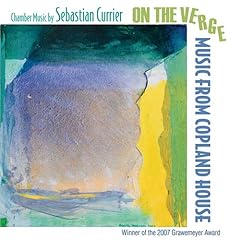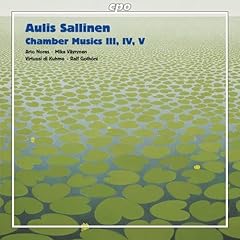Last night the Los Angeles Master Chorale gave the premiere of Requiem by Christopher Rouse. This is an excellent work. It is beautiful. It is emotional. It is powerful. It is dramatic, and it is peaceful. This is a Requiem that sets a standard for composers of the future while holding its own against compositions of the past.
Jerry Bowles gave us the link to the video recorded by Grant Gershon as summarized the work for his Board; it’s worth hearing again, so here’s the link. David Salvage reported Thursday on his interview with Rouse, so scroll down and re-read that. Rouse provided notes on the work for inclusion in the program; those notes are here. In addition, the program included these notes by Victoria Looseleaf. I encourage you to read them all.
Instead of trying to paraphrase what others have written so well, let me tell you what impressed me, just a set of individual thoughts and feelings without trying to bridge among them. Rouse gave us an exhilarating range of colors, tones and emotions. He found an emotional core within each section of the requiem, and he used his choral forces (and his percussion) to help the audience feel the content. He included his audience in the feelings and beliefs so that we were not merely sitting there listening to a ritual. I was grateful for the pause after the emotional power of the “Lacrymosa”. The demands on the chorus are huge; the work demands extremely good singers, and it provides compensation for the work. We could see the expressions on the faces of the members of the Master Chorale (101 last night) and the Los Angeles Children’s Chorus (57, I think). What focus and concentration. What joy, and pleasure, and relief as they stood there and had the waves of applause surround them. Sanford Sylvan was the excellent baritone soloist, handling the range of pitch Rouse asked of him while letting us understand the words. While the music Rouse gave him was less inherently interesting to me than his choral work, he was used to remind us of loss and the need for requiem. I really liked Rouse’s ending, in which the threads of the Everyman soloist and the choruses intertwine and, for the first time, the soloist sings the church verse while the chorus becomes the person dealing with loss and recovery. Gershon did a great job as conductor. Oh, I wish that last night’s performance was recorded. (There is word that KUSC-FM will broadcast the performance, and when I find out when the broadcast will be, I’ll submit a posting so that you can listen.)
Some final comments. If I were in New York, I’d make sure I have tickets for Thursday’s premiere of Rouse’s Wolf Rounds at Carnegie Hall. I don’t have enough Rouse recordings on my iPod; how could I forget what a good composer he is? If Requiem doesn’t win Christopher Rouse his second Pulitzer, there is one great piece out there still waiting to be heard. I thank Soli Deo Gloria and John Nelson for commissioning this work.
The Master Chorale and Grant Gershon really did a good job in communicating that this would be an important evening of music.


 Chamber Musics III, IV, V
Chamber Musics III, IV, V
 Katharine is a British-born composer, sound artist and writer, currently living about as far out West as you can get on Pender Island in BC, Canada. Prior to this “slightly alarming” (her words) change of direction she was Director of the Electronic Music Studios at Goldsmiths, University of London. She now supports the composing habit by freelance writing and some teaching. She’s composed instrumental music, music combining instruments or voices and digital media, and purely electronic work. Her music makes frequent use of documentary sound – conversation, city sounds, birds etc. – in a way that perhaps invites new appreciation both of the ‘real world’ and of the concert hall. Increasingly, she writes about music, in particular electroacoustic and electronic music. Her book of experimental writings on recent electronic music (of many kinds and approaches) entitled Sounding Art: Eight Literary Excursions through Electronic Music was published by Ashgate in 2004.
Katharine is a British-born composer, sound artist and writer, currently living about as far out West as you can get on Pender Island in BC, Canada. Prior to this “slightly alarming” (her words) change of direction she was Director of the Electronic Music Studios at Goldsmiths, University of London. She now supports the composing habit by freelance writing and some teaching. She’s composed instrumental music, music combining instruments or voices and digital media, and purely electronic work. Her music makes frequent use of documentary sound – conversation, city sounds, birds etc. – in a way that perhaps invites new appreciation both of the ‘real world’ and of the concert hall. Increasingly, she writes about music, in particular electroacoustic and electronic music. Her book of experimental writings on recent electronic music (of many kinds and approaches) entitled Sounding Art: Eight Literary Excursions through Electronic Music was published by Ashgate in 2004. Ryan is a San Francisco-based composer and performer, most frequently combining the two in the “rock chamber ensemble”
Ryan is a San Francisco-based composer and performer, most frequently combining the two in the “rock chamber ensemble”  Consider this:
Consider this:  I caught the second of “In Your Ear Redux” concerts at Zankel Hall with The Tensions Mountain Boys Saturday night, and I was happy I did!
I caught the second of “In Your Ear Redux” concerts at Zankel Hall with The Tensions Mountain Boys Saturday night, and I was happy I did!